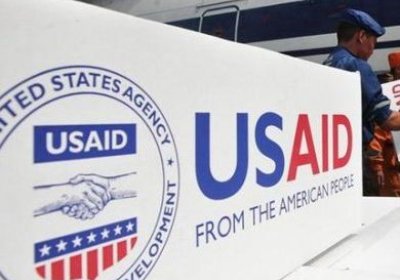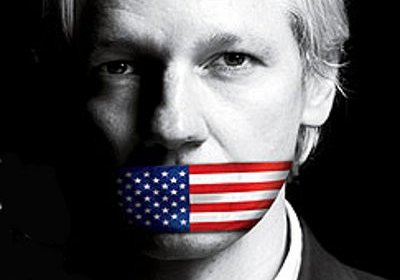 President Rafael Correa led some 55,000 workers into Santo Domingo plaza. Photo: TeleSUR.
May Day celebrations in Quito took on a divided political nature with two marches happening simultaneously, TeleSUR English said on May 1.
President Rafael Correa led some 55,000 workers into Santo Domingo plaza. Photo: TeleSUR.
May Day celebrations in Quito took on a divided political nature with two marches happening simultaneously, TeleSUR English said on May 1.
Rafael Correa
 President Rafael Correa led some 55,000 workers into Santo Domingo plaza. Photo: TeleSUR.
May Day celebrations in Quito took on a divided political nature with two marches happening simultaneously, TeleSUR English said on May 1.
President Rafael Correa led some 55,000 workers into Santo Domingo plaza. Photo: TeleSUR.
May Day celebrations in Quito took on a divided political nature with two marches happening simultaneously, TeleSUR English said on May 1.
Ecuador has lifted 1.3 million people out of poverty in the past eight years, a new survey revealed on April 13, TeleSUR English said that day.
The results of the first “Survey of Living Conditions in Ecuador” showed that poverty has fallen by one third. It also revealed that 900,000 individuals have been lifted out of extreme poverty, whilst the Gini coefficient, which measures wealth gaps, has dropped 4.8 points since 2006.
Experience proves that left-wing movements can win government, but nevertheless not hold power. Democracy, in other words the exercise of power by the people and for the people, requires much more.
The problem is now being faced in Greece with with radical left party SYRIZA, which won elections in January. It will have to be faced in Spain if the new anti-austerity party Podemos wins November elections.
US President Barack Obama issued an Executive Order regarding Venezuela on March 9 that escalated US attacks on Venezuela's left-wing government.
The order amounts to an act of aggression against Venezuela's sovereignty by declaring a “national emergency” based on claims the oil-rich South American nation threatens US national security due to alleged human rights violations and corruption.
The Bolivarian Alliance of the Peoples of Our America (ALBA) is an anti-imperialist trading bloc first formed by the left-wing governments of Venezuela and Cuba to promote trade on the basis of solidarity rather than competition.
It has since expanded to include 11 nations, with Venezuela and Cuba joined by Bolivia, Ecuador, Nicaragua, Dominica, Antigua and Barbuda, St Vincent and the Grenadines, Saint Lucia, Grenada and Saint Kitts and Nevis. Honduras was an ALBA member, but was forced to withdraw when a 2009 US-backed coup installed a right-wing dictatorship.
The huge multinational US oil corporation Texaco operated in Ecuador from 1964 until 1992 (Texaco merged with Chevron in 2001).
The corporation poured 72 billion litres of oil waste and 45 million litres of crude oil over 2 million hectares of land in Santa Elena province — land which included the Amazon rainforest, rivers and agricultural land.
Texaco just poured the oil into ground-connected pipes which just poured oil directly into the rivers and forests.
The US’s role in Latin America is facing a growing challenge. The 33 member states of the Community of Latin American and Caribbean States (CELAC) vehemently rejected North American intervention in the continent, and particularly the US-led blockade of Cuba and recent sanctions against Venezuela.
These positions were part of the “Belen Declaration”, approved during CELAC’s third annual presidential summit, held on January 28th and 29th in Belen, Costa Rica.
After more than 50 years in Ecuador, the US Agency for International Development (USAID) closed up shop last month. The Ecuadorian government said USAID has been asked to leave Ecuador, while a US Embassy official claimed it was USAID’s decision.
Cables sent from the US Embassy in Quito during Rafael Correa’s first three years as president document rising tensions between Ecuador and the US.
Correa’s government, first elected in 2006, increasingly rejected US hegemony and asserted control over Ecuador’s economic and political development.
The cables highlight the embassy’s preoccupation with Ecuador’s “difficult investment climate”, with many reports attempting to assess and predict Correa’s economic policies.
The latest Green Left Report discusses the passing of revolutionary Venezuelan president Hugo Chavez, and his legacy in Venezuela, Latin America and globally.
The Socialist Alliance released the statement below on August 25.
* * *
The government of Ecuadorean President Rafael Correa gave Julia Gillard's Australian government a lesson in dignity on August 16 when, facing British threats to raid its London embassy, it granted asylum to WikiLeaks editor-in-chief Julian Assange.
The Union of South American States (UNASUR) threw its support behind Ecuador in its diplomatic dispute with Britain over Wikileaks founder Julian Assange, after a meeting of UNASUR foreign ministers yesterday in Guayaquil, Ecuador.
UNASUR unites 12 South American nations (Argentina, Bolivia, Brazil, Chile, Colombia, Guyana, Ecuador, Uruguay, Paraguay, Peru, Suriname and Venezuela).
On August 16, Ecuador granted Assange diplomatic asylum in its London embassy due to fears his human rights could be violated if extradited to Sweden to face sexual assault charges.
- Previous page
- Page 5
- Next page









